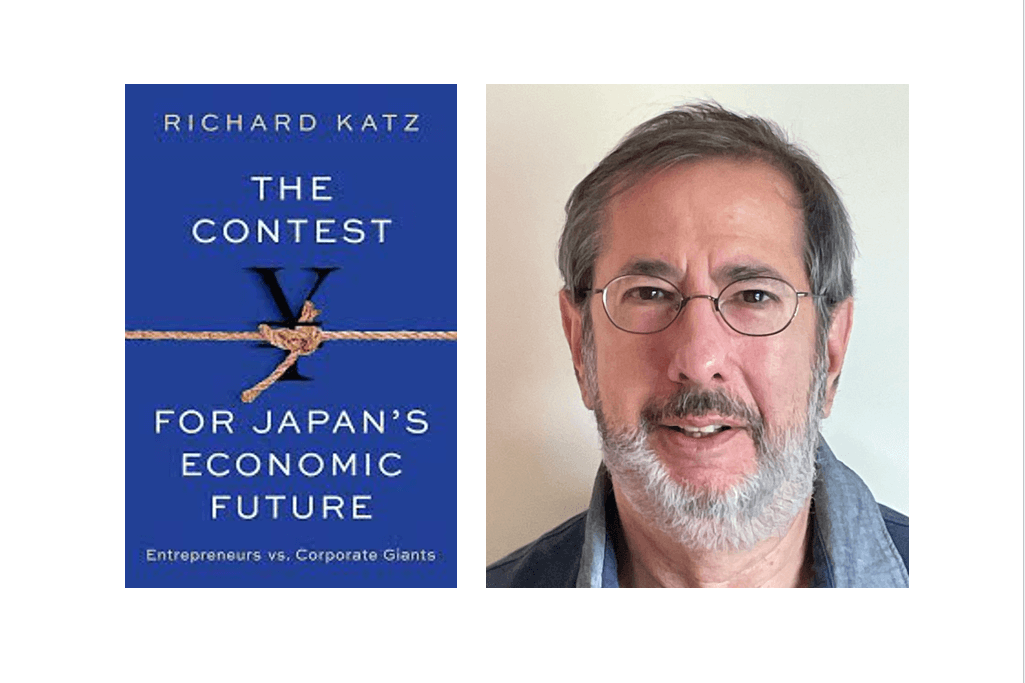Japan's Economic Future: Bank Of Japan's Response To Trade Disputes

Table of Contents
The Impact of Trade Disputes on Japan's Economy
Trade wars, particularly the US-China trade war, have profoundly affected Japan's economy. As a major exporter, Japan is highly vulnerable to disruptions in global trade flows. The impact manifests in several ways: reduced export demand from key trading partners like China and the US, increased import costs due to tariffs and retaliatory measures, and significant supply chain disruptions impacting various industries, from automobiles to electronics. These disruptions ripple through the economy, negatively impacting investor confidence and foreign direct investment (FDI), potentially leading to decreased capital expenditure and job losses. Furthermore, reduced consumer spending due to higher prices can contribute to deflationary pressures.
- Reduced export demand from key trading partners: Tariffs and trade barriers erected by other nations directly reduce the demand for Japanese goods and services.
- Increased import costs due to tariffs and retaliatory measures: Higher import costs increase production expenses for Japanese companies, affecting their competitiveness and profitability.
- Supply chain disruptions affecting various industries: Trade disputes create uncertainty and instability in global supply chains, leading to production delays and increased costs.
- Negative impact on investor confidence and foreign direct investment: Uncertainty surrounding trade policies discourages both domestic and foreign investment, hindering economic growth.
- Potential for deflationary pressures due to reduced consumer spending: Higher prices for imported goods and reduced consumer confidence can lead to decreased spending and deflation.
BOJ's Monetary Policy Responses
The BOJ has responded to the negative impacts of trade disputes primarily through its traditional monetary policy tools. These include maintaining exceptionally low interest rates to stimulate borrowing and investment, and implementing quantitative and qualitative easing (QQE) with Yield Curve Control (YCC) to manage long-term interest rates. The goal is to inject liquidity into the financial markets, preventing credit crunches and encouraging lending. Forward guidance, communicating the BOJ's intentions and future policy direction, aims to manage market expectations and influence investor behavior. However, the BOJ acknowledges the limitations of monetary policy in addressing structural economic issues stemming from trade disputes.
- Maintaining low interest rates to stimulate borrowing and investment: Low interest rates make borrowing cheaper, encouraging businesses to invest and expand.
- Implementing QQE with Yield Curve Control (YCC) to manage long-term interest rates: QQE involves purchasing government bonds and other assets to increase money supply and lower long-term interest rates.
- Injecting liquidity into the financial markets to prevent credit crunches: Ensuring sufficient liquidity prevents a shortage of credit, which could severely impact businesses.
- Forward guidance to manage market expectations and influence investor behavior: Clear communication helps stabilize markets and build confidence.
- Assessment of the limitations of monetary policy in addressing structural economic issues: Monetary policy alone cannot solve problems like supply chain disruptions or trade barriers.
Unconventional Monetary Policies and their Effectiveness
The BOJ's unconventional monetary policies, including negative interest rates, have been a subject of ongoing debate regarding their effectiveness and potential side effects. While negative interest rates aim to incentivize lending and investment, their impact has been limited, and concerns remain about their potential to distort financial markets and discourage bank lending. Prolonged quantitative easing also carries risks, including the potential for asset bubbles and increased financial instability. Yen depreciation, a consequence of these policies, can benefit exports in the short term but also leads to higher import prices and inflation.
- Analysis of the effectiveness of negative interest rates: The impact of negative interest rates has been debated, with limited evidence of significant stimulative effects.
- Discussion on the potential risks of prolonged quantitative easing: Prolonged QQE can lead to asset bubbles and increased financial instability.
- Examination of the impact of yen depreciation on inflation and exports: Yen depreciation can boost exports but also increase import costs and inflation.
Fiscal Policy Coordination and its Role
Mitigating the effects of trade disputes requires a coordinated approach involving both monetary and fiscal policies. The government plays a crucial role complementing the BOJ's actions. Fiscal measures like increased government spending on infrastructure projects can stimulate economic activity and create jobs. Tax cuts or incentives can encourage private investment and consumption. Supporting industries directly affected by trade disputes through subsidies or bailouts can help mitigate job losses and maintain economic stability. International cooperation to resolve trade tensions is also critical for long-term stability.
- Government spending on infrastructure projects to boost economic activity: Infrastructure spending creates jobs and stimulates economic growth.
- Tax cuts or incentives to encourage private investment and consumption: Tax cuts can boost consumer spending and business investment.
- Supporting industries affected by trade disputes through subsidies or bailouts: Targeted support can help industries weather trade-related challenges.
- Importance of international cooperation to resolve trade tensions: International cooperation is crucial for reducing trade barriers and fostering global economic stability.
Conclusion
The Bank of Japan's response to trade disputes is crucial for Japan's economic stability. While monetary policies like low interest rates and QQE play a significant role, their effectiveness is limited in the face of major structural economic challenges exacerbated by global trade wars. Coordination with fiscal policies is paramount. The long-term effects of these disputes and the BOJ's responses remain to be seen, requiring continuous monitoring and strategic adjustments. Understanding the Bank of Japan's response to trade disputes, including its use of monetary and fiscal policies, is crucial for navigating the complexities of the Japanese economy.
Call to Action: Understanding the Bank of Japan's response to trade disputes is vital for anyone interested in Japan's economic future. Stay informed about the BOJ's actions and their implications for the Japanese economy and global markets. Continue researching the Bank of Japan's response to trade disputes and related monetary policies for a comprehensive understanding of this critical issue.

Featured Posts
-
 Thes Dansants Comment Le Numerique Peut Vous Aider A Reussir
May 02, 2025
Thes Dansants Comment Le Numerique Peut Vous Aider A Reussir
May 02, 2025 -
 Check Lotto Lotto Plus 1 And Lotto Plus 2 Draw Results
May 02, 2025
Check Lotto Lotto Plus 1 And Lotto Plus 2 Draw Results
May 02, 2025 -
 High Waisted Suit Trend Selena Gomezs 80s Office Style
May 02, 2025
High Waisted Suit Trend Selena Gomezs 80s Office Style
May 02, 2025 -
 Xrp Explained What Is It And How Does It Work
May 02, 2025
Xrp Explained What Is It And How Does It Work
May 02, 2025 -
 Analisi Della Retorica Di Medvedev Minacce Nucleari E Il Sentimento Anti Russo Nell Ue
May 02, 2025
Analisi Della Retorica Di Medvedev Minacce Nucleari E Il Sentimento Anti Russo Nell Ue
May 02, 2025
